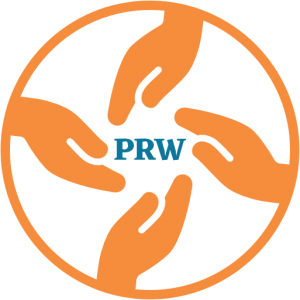Paul Atkins
Visiting Associate Professor
Australian National University
paul.atkins@anu.edu.au
Website
Related Research Interests
Paul Atkins is a facilitator, speaker, mediator, coach and researcher. He is co-founder and vice president of Prosocial World, a not-for-profit focused on enhancing cooperation and trust in mission-driven groups globally. Prosocial has been used to help improve group effectiveness in contexts as diverse as slowing the spread of Ebola in Sierra Leone, improving cooperation between United Nations organisations, enhancing performance in the Australian government and improving cooperation in public schools.
Paul is a Visiting Associate Professor with the Crawford School of Public Policy (Australian National University). His research has focused on interventions to reduce stress while enhancing relationships, well-being, perspective taking and cooperation in groups and organisations. He is the lead author of the best-selling book “Prosocial: Using Evolutionary Science to Build Productive, Equitable, and Collaborative Groups”.
Paul is a registered psychologist with a PhD in Psychology from Cambridge University and board endorsement as an organisational psychologist. He has had extensive experience teaching leadership, organisational behaviour and psychology at Masters and undergraduate level. He is the past President of the ANZ Association for Contextual Behavioural Science and a Fellow of the international ACBS.
The thing I love most about working in ProSocial World is the opportunity to have authentic conversations with others dedicated to deepening relationships and improving society. I get so much inspiration from all the amazing efforts people are making to turn around the many crises we now face. While I will be continuing my work, my next life challenge is learning to live on a boat with my wife travelling up and down the East Coast of Australia. I am so looking forward to living on the ocean.
Relevant Publications
- Atkins, P. W. B. (2013). Empathy, self-other differentiation and mindfulness. In K. Pavlovich & K. Krahnke (Eds.), Organizing Through Empathy (pp. 49-70). New York: Routledge.
- Atkins, P. W. B., Hassed, C., & Fogliati, V. (2015). Mindfulness improves work engagement, wellbeing and performance in a university setting. In R. J. Burke, K. M. Page, & C. L. Cooper (Eds.), Flourishing in Life, Work, and Careers: Individual Wellbeing and Career Experiences. New Horizons in Management. Cheltenham, UK: Edward Elgar Publishing.
- Atkins, P. W. B., & Parker, S. K. (2012). Understanding individual compassion in organizations: the role of appraisals and psychological flexibility. Academy of Management Review, 37(4), 524-546.
- Atkins, P. W. B., & Styles, R. (2016). Measuring psychological flexibility in what people say: A behavioral measure of self-discrimination predicts wellbeing. Journal of Contextual Behavioral Science, 5(2), 71-79.
- Christie, A. M., Atkins, P. W. B., & Donald, J. (2017). The meaning and doing of mindfulness: The role of values in the link between mindfulness and well-being. Mindfulness, 8, 368–378.
- Ciarrochi, J., Atkins, P. W. B., Hayes, L., Sahdra, B. K., & Parker, P. (2016). Contextual positive psychology: Policy recommendations for implementing positive psychology into schools. Frontiers in Psychology, 7(Oct), 1561.
- Costanza, R., & Atkins, P. W. B. (2014). Toward an Integrated Science and Sociotecture of Intentional Change. Behavioral and Brain Sciences, 37(4), 438-460.
- Costanza, R., Atkins, P. W. B., Bolton, M., Cork, S., Grigg, N. J., Kasser, T., & Kubiszewski, I. (2017). Overcoming societal addictions: What can we learn from individual therapies? Ecological Economics, 131(January), 543-550.
- Costanza, R., Atkins, P. W. B., Bolton, M., Cork, S., Grigg, N. J., Kasser, T., & Kubiszewski, I. (2017). Societal addiction therapy: from motivational interviewing to Community Engaged Scenario Planning. Current Opinion in Environmental Sustainability, 26, 47-53. doi: http://dx.doi.org/10.1016/j.cosust.2017.02.011
- Donald, J. N., & Atkins, P. W. B. (2016). Mindfulness and coping with stress: do levels of perceived stress matter? Mindfulness, 7, 1423-1436.
- Donald, J. N., Atkins, P. W. B., Parker, P., & Christie, A. (2017). Cognitive defusion predicts more approach and less avoidance coping with stress, independent of threat and self-efficacy appraisals. Journal of Personality, Early view online.
- Donald, J. N., Atkins, P. W. B., Parker, P., & Christie, A. M. R., Richard. (2016). Daily stress and the benefits of mindfulness: Examining the daily and longitudinal relations between present-moment awareness and stress responses. Journal of Research in Personality, 65, 30-37.
- Donald, J. N., Duineveld, J., Zanden, B. V., Sahdra, B., Atkins, P. W. B., Marshall, S., & Ciarrochi, J. (under review). Can your mindfulness benefit others? A systematic review and meta-analysis of the link between mindfulness and prosocial behavior. Personality and Social Psychology Review.
- Reb, J., & Atkins, P. W. B. (Eds.). (2015). Mindfulness in Organisations. Cambridge: Cambridge University Press.
